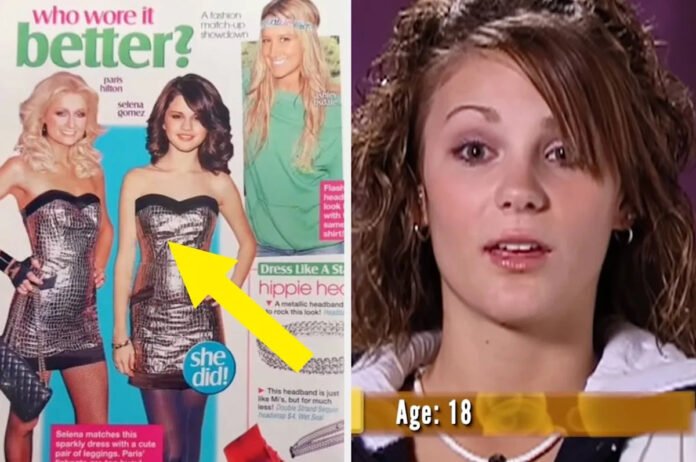The 2000s: A Nostalgic Yet Problematic Era
The 2000s were a whirlwind of cultural phenomena, from the rise of low-rise jeans and flip phones to a pop culture landscape that was both iconic and deeply problematic. As we look back, it’s striking to see how much has changed, and how what once felt "normal" can now evoke a collective cringe.
Reality TV and Makeover Culture
One of the most notable trends of the 2000s was the explosion of reality television, particularly shows centered around makeovers. Programs like Extreme Makeover and The Swan showcased women who were publicly ridiculed for their appearances before undergoing dramatic transformations. These shows framed the narrative as empowering, but in hindsight, they often perpetuated harmful beauty standards and reinforced the idea that self-worth is tied to physical appearance. The laughter and applause that accompanied these transformations now feel unsettling, as we recognize the emotional toll such public scrutiny can have.
Casual Use of Slurs in Comedy
Another aspect of 2000s pop culture that raises eyebrows today is the casual use of slurs and derogatory language in mainstream media. Sitcoms and comedy shows frequently relied on jokes that targeted marginalized communities, particularly LGBTQ+ individuals. What was often dismissed as "harmless humor" contributed to a culture of acceptance for discrimination and prejudice. The normalization of such language in popular media has since been challenged, as society has become more aware of the impact of words and the importance of inclusivity.
Abstinence-Only Education
In schools, the 2000s were marked by abstinence-only education programs that often shamed young women while neglecting to address issues of consent and equality. Assemblies dedicated to teaching students about abstinence framed girls as "temptations," reinforcing harmful stereotypes and failing to equip students with the knowledge they needed for healthy relationships. This approach not only perpetuated shame but also ignored the complexities of teenage sexuality and the importance of mutual respect.
The Body Policing of Women
Magazines during this era played a significant role in perpetuating harmful narratives about women’s bodies. Features that pitted female celebrities against each other with captions like "Who wore it better?" or "Beach body or bad angle?" contributed to a culture of body policing. This constant comparison fostered insecurity and a toxic environment where women’s worth was measured against unrealistic beauty standards. The obsession with appearance was not just a trend; it was a reflection of deeper societal issues regarding gender and self-esteem.
Shifting Perspectives on Pop Culture Norms
As we reflect on these cultural norms from the 2000s, it becomes clear that many behaviors and trends that seemed acceptable at the time are now viewed as inappropriate or harmful. The shift in societal attitudes has prompted a reevaluation of what we consume in media and how we engage with one another.
Engaging with Our Past
So, what’s something from the 2000s that felt completely normal but now feels wildly inappropriate? Perhaps it’s the way we laughed at jokes that marginalized others or the way we celebrated superficial transformations without considering the underlying messages.
As we continue to grow and learn, it’s essential to acknowledge how far we’ve come while also recognizing the lessons we can take from the past. The 2000s were a formative time that shaped an entire generation, and understanding these cultural shifts helps us navigate the complexities of today’s society.
Feel free to share your thoughts and experiences in the comments below, or if you prefer to remain anonymous, use the form provided. Your reflections could contribute to a broader conversation about our cultural evolution.

